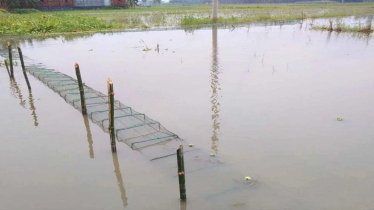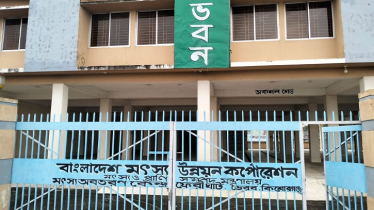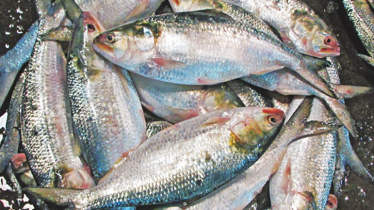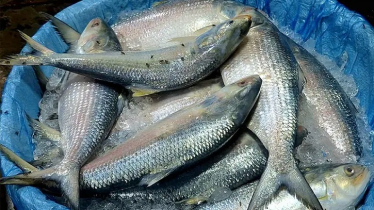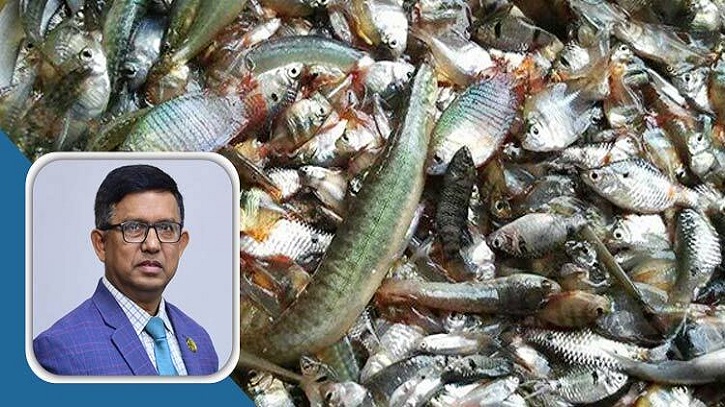
Fish remains a central part of the daily diet in Bangladesh, contributing not only to nutrition but also to livelihoods and the national economy. However, many native species are gradually disappearing, and their survival is now under serious threat, particularly due to the destruction of fish fry during the crucial monsoon breeding season.
Monsoon is the prime breeding season for most indigenous fish in Bangladesh. However, this natural process is increasingly being disrupted, raising concerns about the future existence of many species. Once commonly found in village markets and caught in fishermen’s nets, many native species have now become rare.
There are more than 50 native fish species in the country. A major cause of their decline is indiscriminate harvesting of fry by both fishermen and locals, which prevents fish from maturing and reproducing in future seasons.
In an interview with Jago News, Professor Dr. Mrityunjoy Kunda, former Dean of the Faculty of Fisheries at Sylhet Agricultural University, emphasized the importance of protecting fry during the breeding season and outlined steps to ensure the conservation of native species.
He explained that the breeding season for native fish typically begins between May and July, with some variation depending on region. In areas like Sylhet, where rainfall begins earlier, the breeding season starts as early as April or May. During this period, both major carp species and smaller native fish begin to reproduce.
Common species that breed during this time include carp varieties such as rui, katla, mrigel, and carnivorous species like boal, gazar, and air. Smaller fish, such as mola, dhela, chanda, puti, tengra, and batashi, also begin reproducing with the first rainfall. These species are rich in vital nutrients including vitamin A, calcium, zinc, iron, phosphorus, protein, and vitamin D, and are particularly beneficial for eye health.
Dr. Kunda warned that the continued harvesting of fry is one of the primary reasons behind the declining populations of native fish. In many cases, leaseholders of waterbodies extract all fish, including fry, using methods such as draining or poisoning, leaving no fish behind to mature or reproduce.
He stressed that the loss of native species would have significant nutritional and ecological consequences. Many species are already endangered, and without urgent intervention, they could vanish entirely from local waters.
To prevent fry harvesting, Dr. Kunda suggested both community awareness and institutional action. Public awareness campaigns should be conducted through loudspeakers and community meetings, involving local administration, villagers, and experts from agricultural universities and fisheries departments. He emphasized that efforts similar to those undertaken during the national hilsa fishing ban must be replicated for native species, including government assistance for affected fishing communities.
He recommended legal restrictions on the use of illegal fishing nets such as gill nets and enforcement of seasonal bans during breeding periods. Support packages, including food assistance for fishermen during no-fishing periods, could also discourage harmful practices.
He concluded that saving the country's native fish resources hinges on ending fry harvesting, expanding education, and maintaining sustained conservation efforts every year.


